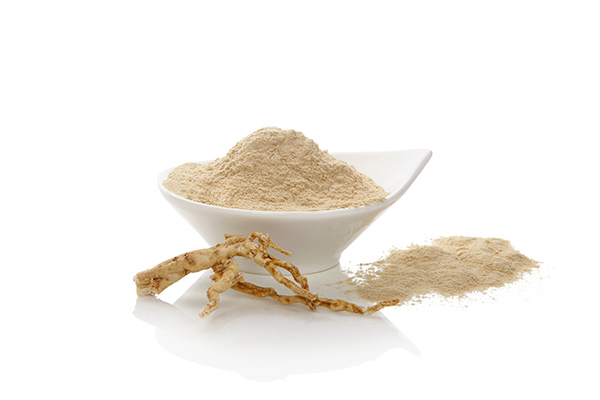-
Home > News & Events > Blog > Human Health
By Natasha Spencer
The latest clinical study by Huazhong University of Science and Technology and Angel Yeast shows the yeast-based probiotic's potential for relieving IBD symptoms.
In collaboration with Huazhong University of Science and Technology in China, global yeast and yeast extract manufacturer, Angel Yeast, has conducted a clinical study to investigate the relationship between Saccharomyces boulardii Bld-3 (S. boulardii) and inflammatory bowel disease (IBD).
The duo researched S. boulardii, a patented yeast-based probiotic developed by Angel Yeast, to understand more about its effect on IBD. The chronic, intermittent disease occurs when the gastrointestinal tract experiences chronic inflammation. The most common functional gastrointestinal (GI) disorder, IBD affects between 10-15% of the worldwide population, the International Foundation for Gastrointestinal Disorders (IFFGD) reveals.[1]
Typical medical treatments for IBD such as antibodies, steroids and immunomodulators have been associated with delivering low treatment responses and a high incidence of recurrence.[2] As a result, innovative health therapeutics are considered highly prevalent to help IBD sufferers manage and treat the condition.
Diarrhoea is a common symptom of IBD, with sufferers prone to experiencing stools that contain mucus or blood, nocturnal diarrhoea and incontinence, the World Gastroenterology Organisation states in its 2015 global guidelines.[3] The China-headquartered food company developed S. boulardii to address diarrhoea and to improve overall digestive health.

Examining the impact of S. boulardii on IBD
While previous clinical studies have illustrated the beneficial effects of S. boulardii, Angel Yeast recognised the importance of exploring the underlying mechanisms involved in the prevalence of IBD, as knowledge of these have remained limited and underdeveloped to date.
Prior to Huazhong University of Science and Technology and Angel Yeast's study, there was minimal research that examined the effects of S. boulardii and S. boulardii-derived molecules on the gut microbiota in intestinal inflammation. Gut microbiota refers to the collection of microorganisms that form and live in the digestive tract.
The scientific relationship between S. boulardii and IBD
Teaming up to develop a greater understanding of the scientific connection between S. boulardii and IBD, Huazhong University of Science and Technology and Angel Yeast published its latest research in the Food & Function journal in November 2021.
The study, Saccharomyces boulardii alleviates DSS-induced intestinal barrier dysfunction and inflammation in humanized mice,[4] was designed to investigate the modulating effect of S. boulardii on the intestinal microbiota of humanised mice with dextran sulphate sodium (DSS)-induced colitis.
To develop understanding, the researcher's aim in this study was to examine the role of S. boulardii in the gut microbial ecosystem and to identify the potential mechanisms of the probiotic's intestinal anti-inflammatory activity.
The researchers created a mouse model populated with synthetic human microbiota to better investigate the impact of S. boulardii on the human gut microbiota. During the study, the humanised mice—which contain functioning cells, tissues, genes and/or organs and are often used in medical and biological research—were given a diet of the S. boulardii probiotic supplement for a total of 16 days, before then receiving DSS treatment to spur colitis.
Gut microbiota has long been recognised as playing a pivotal role in maintaining the health of its host, with clinical data demonstrating that the gut microbiota of IBD patients varies considerably in composition and function.[5] The present study agreed, stating that gut microbiota should be considered as a new therapeutic target in IBD.
The results of the research study found that feeding the humanised mice with S.boulardii significantly alleviated mucosal damage in the colon tissue, altered the composition of gut microbiota and the faecal metabolic phenotype, and increased the development of microbial metabolite short-chain fatty acids (SCFAs). Therefore, the findings point towards the probiotic's potential to improve the regulation of inflammatory responses and lessen DSS-induced colitis.
In conclusion, the study confirmed that S. boulardii has the potential to modulate the gut microbiota to successfully prevent and treat IBD.
Key insight:
The study's findings illustrate the patented probiotic's beneficial role in addressing the symptoms of IBD.
Supporting S. boulardii research
In a recent study published in July 2021 in the Oxidative Medicine and Cellular Longevity journal, researchers sought to analyse the therapeutic effects of S. boulardii on DSS-induced murine ulcerative colitis (UC) and demonstrate mechanisms of action (how the probiotic produces an effect in the body).
The study, Saccharomyces boulardii Ameliorates Dextran Sulfate Sodium-Induced Ulcerative Colitis in Mice by Regulating NF-κB and Nrf2 Signaling Pathways,[6] appeared in a special issue of the journal, exploring the role of bioactive compounds of food in the prevention and treatment of diseases.
Researchers gave S. boulardii to mice for a total of three weeks and then administered DSS for a further week. Administrating S. boulardii obviated a DSS-induced reduction in body weight, diarrhoea, bloody faeces, decreased colon length and loss of histological structure.
The patented yeast-based probiotic also provided intestinal barrier protection, restricted colonic inflammation and lessened colonic oxidative damage.
Key insight:
The researchers' findings indicate the effectiveness of S. boulardii in preventing DSS-induced UC, therefore presenting a new and appealing therapeutic treatment to address UC. Furthermore, this particular strain of yeast-based probiotic, S. boulardii, highlights intestinal barrier protective and immunomodulatory effects[1] and, in particular, offers protection against UC.
Positive potential of S. boulardii on IBD
Around the world, companies have implemented the S. boulardii patented probiotic into health supplements to meet the needs of consumers in search of a nutritional ingredient that supports overall immune health and good digestion through promoting a happy and healthy gut.
Now, following Huazhong University of Science and Technology and Angel Yeast's new clinical research findings, S. boulardii has further demonstrated its potential to address IBD and support its sufferers by preventing and treating its symptoms.
This atricle first published on Nutraingredients-asia.
Sources:
[1] International Foundation for Gastrointestinal Disorders (IFFGD) Statistics.
[2] Hvas CL et al., 2018. Current, Experimental, and Future Treatments in Inflammatory Bowel Disease: A Clinical Review, Immunopharmacology and Immunotoxicology, 40, 446-460.
[3] World Gastroenterology Organisation Global Guidelines., 2015. Inflammatory Bowel Disease.
[4] Li B et al., 2021. Saccharomyces boulardii alleviates DSS-induced intestinal barrier dysfunction and inflammation in humanized mice. Food & Function.
[5] Lee T et al., 2017.Oral Versus Intravenous Iron Replacement Therapy Distinctly Alters the Gut Microbiota and Metabolome in Patients with Ibd, Gut, 66, 863-871.
[6] Gao H et al., 2021. Saccharomyces boulardii Ameliorates Dextran Sulfate Sodium-Induced Ulcerative Colitis in Mice by Regulating NF-κB and Nrf2 Signaling Pathways. Oxidative Medicine and Cellular Longevity, Vol 2021.







